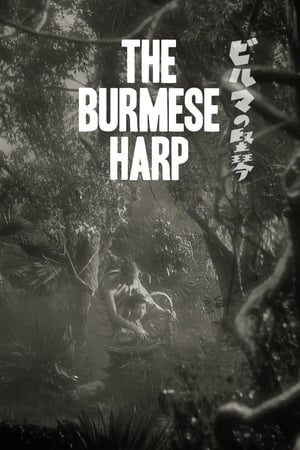In July 1945, near the end of the war in Southeast Asia, a group of Japanese soldiers were on their way to Thailand. Superior Bingshui Island (Changer Anjing), under the command of the captain from the Conservatory of Music, uses the self-taught harp to boost morale and soothe the sad thoughts of the soldiers, and then uses music as the medium to reach a spiritual communication with the British soldiers who accepted their surrender. Mishima was assigned to dissuade a group of Japanese soldiers who resisted, but those soldiers refused to accept the emperor's orders and all died in the war. The surviving Mishima was saved by an old Burmese monk, who stole the clothes of the other side. On the way to the POW camp, he buried the Japanese corpses. When he arrived at the Waterisland of the POW camp, he witnessed the British funeral for his comrades-in-arms. If he realized anything, he hurried back. To bury the remains of countrymen who were abandoned out of fear. The comrades-in-arms of the island tried to find out his whereabouts, and finally they were told by the island that they still had unfinished responsibilities. This film won the fifth top ten of the year in 1956 and the St. George Award at the Venice Film Festival.
 8.0
8.0